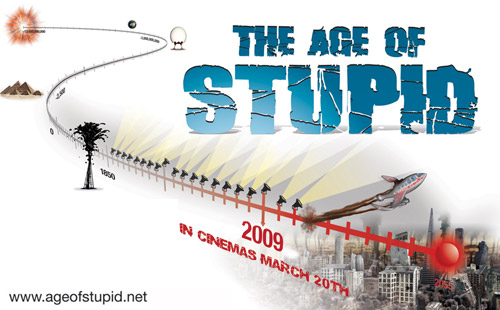 It is no secret to serious writers that much of what we used to consider the vibrant literary world we lived in has collapsed into an unhealthy morass. In his new book, Worlds Made by Words: Scholarship and Community in the Modern West, Anthony Grafton, a Princeton professor with a distinguished history as a scholar of the Renaissance, turns his attention to recent history and does not like what he finds. The world of print that informed and helped to create western society from Gutenberg’s invention of the printing press in 1450 into the late twentieth century is now threatened with being overwhelmed by the swelling flow of digital products from the internet. Prominent among the social effects so far is a bastardization of scholarship. For over half a millennium, a scholar was an individual who had studied long and arduously to command the details of social environment, political history, literature, and science necessary to an understanding of a discipline.
It is no secret to serious writers that much of what we used to consider the vibrant literary world we lived in has collapsed into an unhealthy morass. In his new book, Worlds Made by Words: Scholarship and Community in the Modern West, Anthony Grafton, a Princeton professor with a distinguished history as a scholar of the Renaissance, turns his attention to recent history and does not like what he finds. The world of print that informed and helped to create western society from Gutenberg’s invention of the printing press in 1450 into the late twentieth century is now threatened with being overwhelmed by the swelling flow of digital products from the internet. Prominent among the social effects so far is a bastardization of scholarship. For over half a millennium, a scholar was an individual who had studied long and arduously to command the details of social environment, political history, literature, and science necessary to an understanding of a discipline.
Now in a world increasing inundated by many varieties of faux scholarship, the details within a book that once signaled long study and thorough understanding may signal nothing more than the ability to assemble information with multiple keyboard strokes that supply an appearance of learning. On closer inspection, however, the surface appearance of knowledge so gathered may mask a deep well of ignorance. Despite their intellectual emptiness, such books often sell, some of them very well. It is much as though the legendary typing of a thousand monkeys who would eventually produce Shakespearean tragedies would be much easier these days because the monkeys would be aided by a computer that could sift and sort and help them get to the desired ending much sooner than by chance alone. But the monkeys still wouldn’t understand what they had written.
Doomsday scenarios abound. We observe them, try to understand and explain them to ourselves, and wonder what we can do to find a different path to the future.
The Age of Stupid, a film that opened recently at the IFC center in Manhattan, stars Peter Postlethwaite as a Global Archivist who lives in the year 2055. With the earth ruined, he looks backward at the human follies that have led to disaster. Near the end, he asks and replies “Why didn’t we save ourselves? Was the answer that we weren’t sure we were worth saving?”
“We weren’t sure we were worth saving?” In gloomy moments, it is possible to entertain that thought, but something in human nature rallies against it, much as we awake from our worst nightmares to find that the sun still shines and what was it, after all, that troubled us as we slept?
Translating a vision of general doom to the smaller world of literature, we might take a look at Steve Hely’s How I Became a Famous Novelist, which, in her recent New York Times review, Janet Maslin finds evidence that the general doom is becoming specific to the book world. Presented under the headline Psst! Secrets of a Best-Selling Hack: Basic Rules for Writing Fiction, the review introduces us to a book that portrays a publishing establishment that shuns originality and fine writing in favor of the truly awful. Hely’s protagonist does not arrive at his basic rules by the pure luck of having no talent. Instead, he works at learning to disguise his talent by studying best sellers in order to find out what it is that makes them sell. Then, having learned the tricks, he writes an egregiously bad book that becomes an immediate best seller. It sounds very much as though a bunch of monkeys with a clever computer program might do the same. Maslin’s last words in the review suggest that the protagonist’s “complaints about such books are very funny. They’d be even funnier if they weren’t true.”
Few people are ready to assert that literature is dying, but it may be, and at such a rate that by the year 2055 it will be in danger of disappearing entirely or of being sent into space in a time capsule by the last scientists capable of sending such a craft and the last Global Archivist capable of deciding what is worthy to be saved, in the possibly forlorn hope that it will be discovered in an alien planetary system and deciphered by an alien race, if such a race exists.
We wonder if our literary culture is going the way of the world, rather than leading the way to a better place. Why are we not saving ourselves? Can the answer be that we are not worth saving?
The Scribd Solution
With mainstream publishers obsessed with best-sellers and reviewers drawn into the resulting mania for trash, for a long time writers of small-market books and serious writers with senses tuned to literary quality have been turning to Print on Demand Publishing. P.O.D. can be relatively inexpensive or very expensive indeed. Either way, investing good money in a project that gets a book in print but only rarely results in sales of more than a few copies may feed the ego for a while, but most egos deflate pretty rapidly as the sales returns come in. Self-publication through publishing houses created by the writer is an alternative, but it costs money, too, and success stories tantalize but can hardly be said to run rampant in the book industry.
To this point, I have been writing about traditional books, printed and bound. But there are also e-books.
Among e-book publishers, Scribd seems to have devised a formula that works. Their home page currently boasts “Tens of millions of readers, Millions of documents, 35 billion words.” Random House and Knopf have begun to publish all their new books simultaneously in conventional print copies and, at lower cost, as e-books available through Scribd. Other mainstream publishers using the service include Harvard University Press, MIT, UCLA, and Simon and Schuster. Because the site is international in its reach, a friend of mine, a native of southern India, has found on it a considerable body of literature in his native sub-continent dialect.
Anyone can publish there. The service is free. You open an account, write a few words about your book and yourself, and upload your manuscript. You set your own price for readers who want to download it (anywhere from “free” though prices around $5.00, to $20.00 or more). Scribd takes 20% of receipts, the writer 80%, a neat turn-around of the conventional publisher arrangement. I recently decided to try it with my long-out-of-print book A Season in New South Wales, a memoir of a semester living and teaching in Australia in 1989. With no expectation that it will turn into a best seller, I find satisfaction in seeing it available to anyone curious enough to look at it at.
Possibly there is a catch I haven’t seen in the Scribd enterprise. As one example, I find the site very difficult to navigate. Until I hear otherwise, Scribd seems to me a light in the very dark place of our contemporary publishing world.
Get an Editorial Review | Get Amazon Sales & Reviews | Get Edited | Publish Your Book | Enter the SPR Book Awards | Other Marketing Services






















Leave A Comment